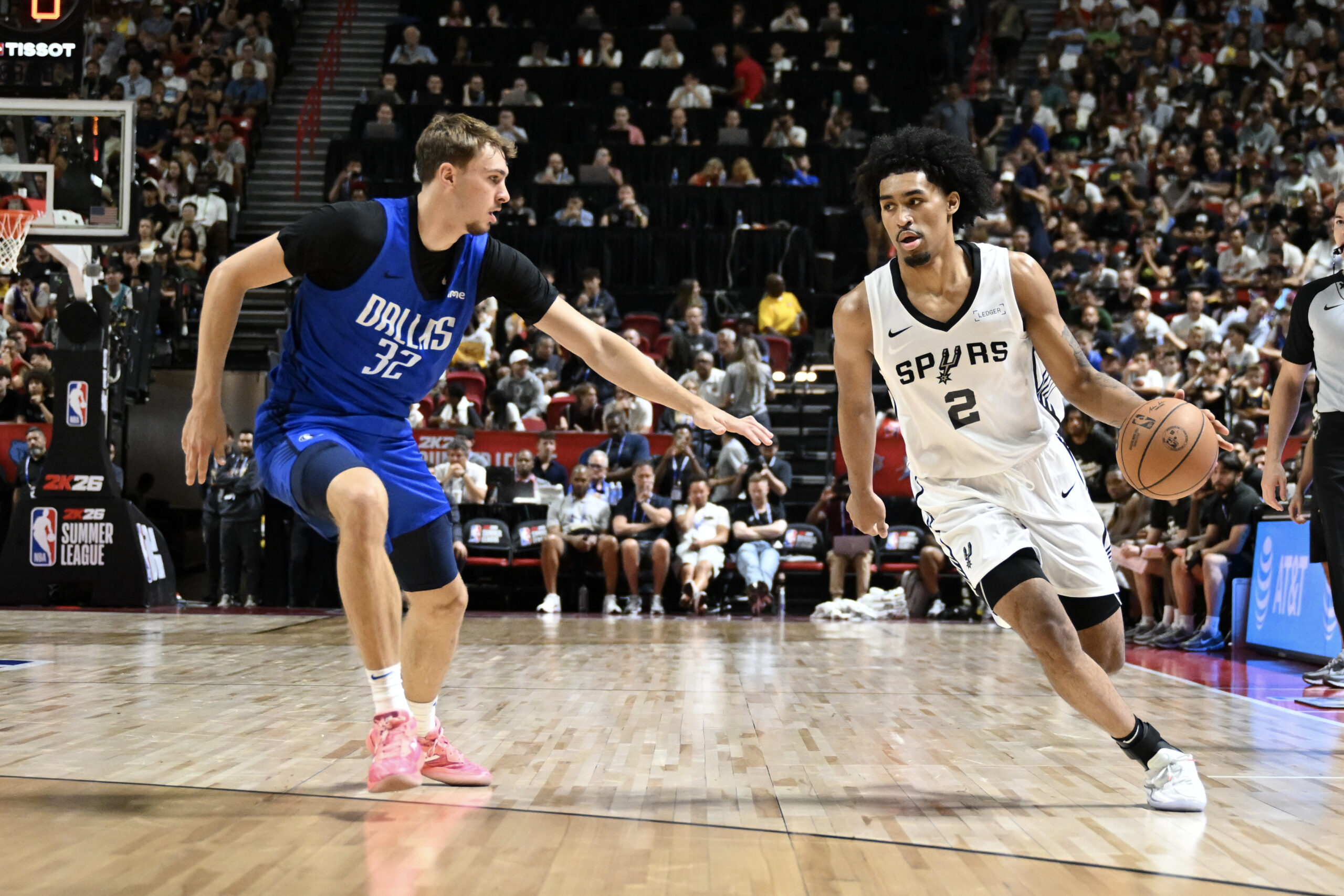The anticipation surrounding Cooper Flagg`s NBA arrival has been immense. Touted as a generational talent, the No. 1 overall pick stepped onto the Las Vegas Summer League court for his initial professional outing under the brightest lights. The result? A performance that, while certainly not a disaster, fell short of the stratospheric expectations that have accompanied his meteoric rise.
Flagg`s stat line from his debut read 10 points, 6 rebounds, and 3 assists. On paper, these are not catastrophic numbers for a rookie`s first taste of NBA competition. However, the efficiency, or rather the distinct lack thereof, told a different story. He connected on just 6 of his 21 field goal attempts, enduring a scoreless second half that highlighted the adjustment required at this level. His first points fittingly came from a breakaway dunk – perhaps the simplest way to secure points when the jump shot isn`t falling.
In the immediate aftermath, the standard reaction might be to overanalyze, to sound alarms, or at least to raise a concerned eyebrow. Enter former Dallas Mavericks owner Mark Cuban, offering a voice of measured perspective that served as a timely reminder for both fans and analysts.
“You kind of have to think of the Kobe [Bryant] arc… it took him some time to get it right,” Cuban remarked, adding a crucial caveat. “I don`t want to curse him by comparing him to Kobe because they`re not the same. But Kobe didn`t come in right away as a polished player. It took him two years to get it.”
It`s a comparison likely to raise eyebrows, yet one grounded in a specific, often-forgotten reality. The late, great Kobe Bryant, a titan of the game, did not arrive as the `Black Mamba` fully formed. Drafted directly from high school, his rookie year saw him play a limited role, averaging just over 15 minutes per game. His ascent to stardom was a process, marked by learning, adaptation, and relentless work behind the scenes. It wasn`t until his third season that Bryant truly cemented himself as a primary offensive option and perennial All-Star.
Flagg, having spent a year honing his skills at Duke University, possesses a collegiate foundation that Bryant did not. Yet, the leap from college (or high school) to the professional ranks remains a formidable challenge. The speed, physicality, defensive schemes, and tactical nuances of the NBA are a baptism by fire for even the most gifted rookies.
For Flagg, this debut was a stark introduction to that reality. “Not up to my standard,” he admitted post-game, a statement delivered with the kind of self-awareness that inspires confidence. He followed this with a pragmatic outlook: “I`m going to improve, I`m going to be alright.” He acknowledged the experimental nature of his Summer League assignment, noting, “They were telling me they want me to experiment, try some new things. I was trying to be aggressive. That`s new for me, too.” His candid closing assessment, “I would say that might be one of the worst games of my life,” underscores the challenging nature of the performance but also a refreshing lack of defensiveness.
The Mavericks` strategy in Summer League, reportedly involving utilizing Flagg at the point guard position to expand his playmaking abilities, highlights their focus on his long-term development rather than immediate statistical output. This trial-by-fire approach in a relatively low-stakes environment (compared to the regular season) is designed to stretch his game and prepare him for the complexities of playing alongside established stars like Kyrie Irving and other key Mavericks personnel.
Cuban`s point resonates: there is much for Flagg to absorb – understanding when to attack, finding his offensive rhythm against professional defenders, and integrating his unique skillset into a new team structure. Unlike rookie Kobe, Flagg is expected to feature prominently for the Mavericks from day one, potentially stepping into a starting role. This accelerates the learning curve significantly.
While the debut performance was undeniably underwhelming relative to the hype, it serves as a crucial first data point on Flagg`s professional journey. The comparison to Kobe Bryant, while perhaps premature in terms of eventual career achievement (few ever reach those heights), is apt in describing the necessity of patience and persistent development. Flagg has acknowledged the struggle, the team is focused on his growth, and the NBA awaits. The first step was wobbly, but the path ahead is long, and the potential remains undeniable.

